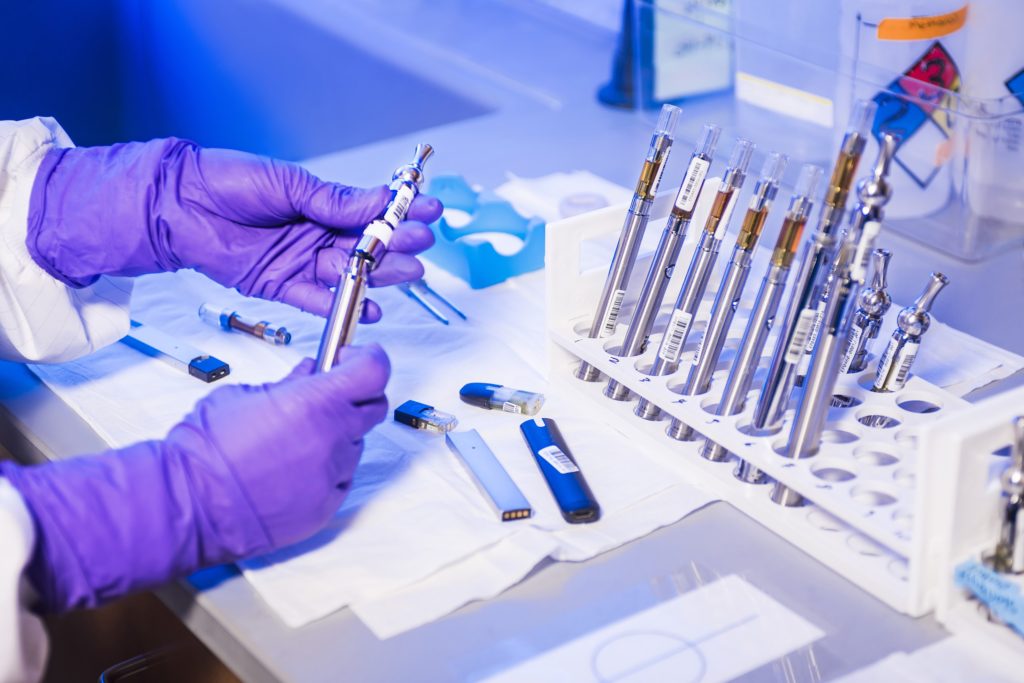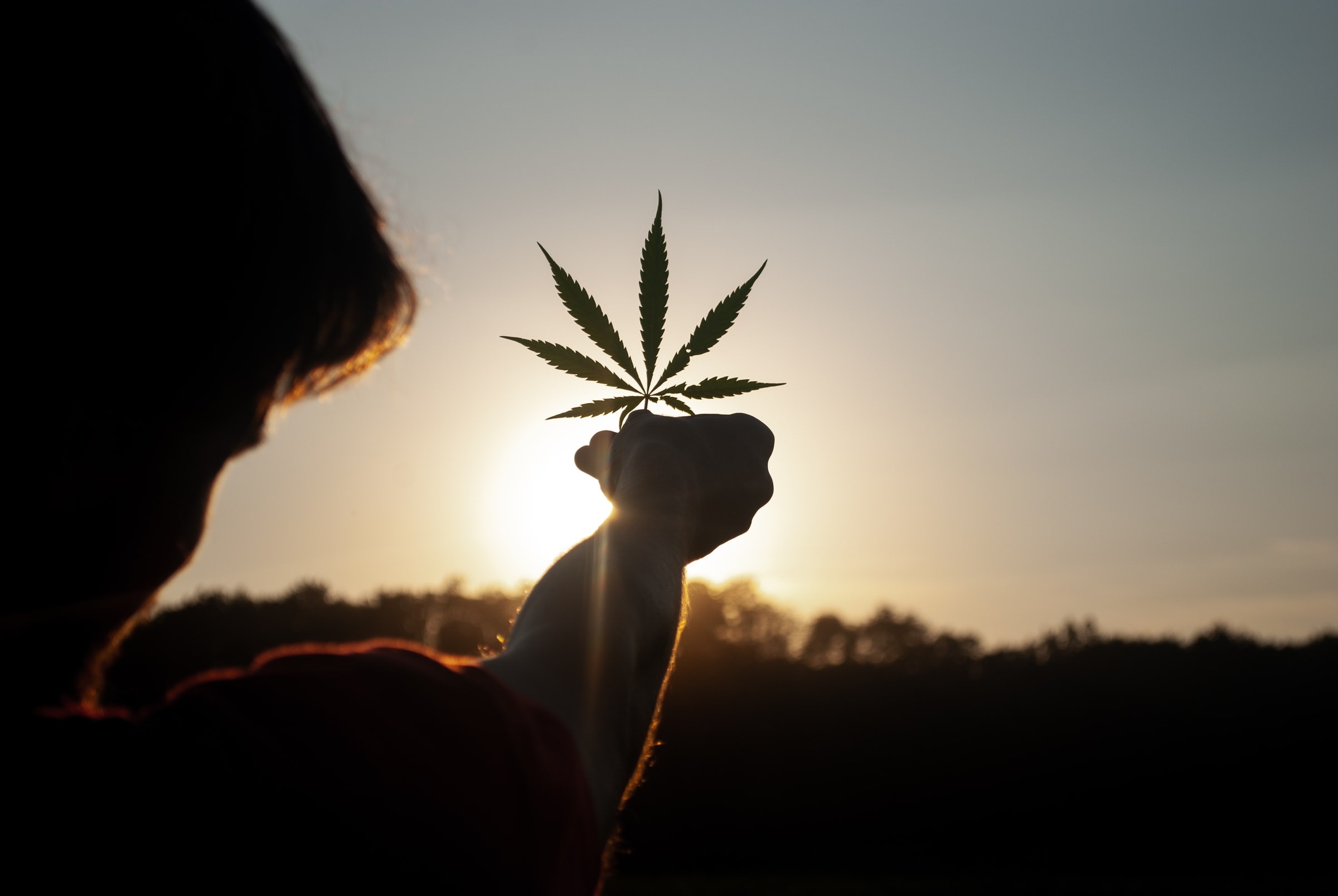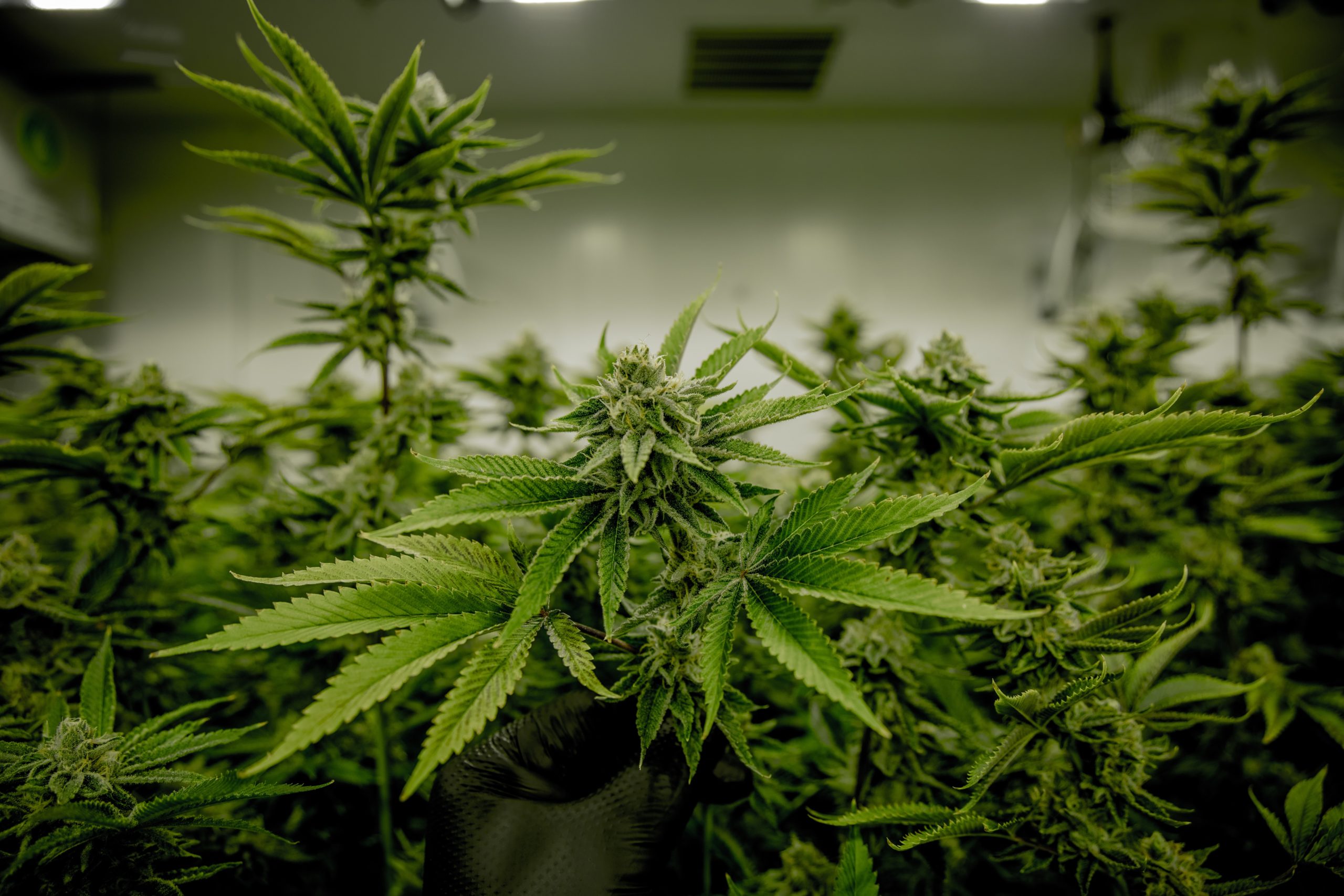Why everyone from cannabis companies to consumers should be concerned about how products are made and tested.
By Todd Christian, SVP of Operations at NewTropic
Here’s a scenario that unfortunately could be all too real: Tim, a second-year college student, wheezed as he took a deep draw off of his vape pen. He took a closer look at the packaging of the THC cartridge he had ordered online, from what looked like a reputable business. He didn’t see anything that stuck out on the label. In fact, he didn’t see much information at all about what it was made from. Not feeling particularly well, he thought, “Maybe I’m just getting sick.”
He temporarily shrugged it off and took a few more hits. A few hours of video games later, he began to feel worse. He felt like he was breathing, but not getting enough air. Starting to gasp, he stumbled over to his roommate and they dialed 911. Tim was rushed to the emergency room and diagnosed with acute lung injury, and while fortunately he recovered, he had to spend the next two weeks in the hospital recuperating.

In the extraordinary times we’re facing in the midst of a global pandemic, it’s easy to forget that just eight short months ago the cannabis industry was rocked by a vaping crisis leaving over 50 dead and thousands more with lung injuries. Last year’s crisis was a wake-up call for the industry, as well as consumers. We learned that most of the cases were linked directly to illegal products, many of them containing an additive called Vitamin E acetate. While health professionals are still studying the specific cause, the CDC suspects that when Vitamin E acetate is heated to vaping temperature it coats the lungs like grease and prevents the intake of oxygen. The CDC is not certain what chemical caused each specific incident, but the organization is eager to find the cause as well as prevent it from happening again.
Here is what we do know: heavy metals, pesticides, and other chemicals that don’t do well in the human body are still regularly discovered in unregulated (aka black market) cannabis products. While this holds true for all cannabis products, vape oil can be particularly problematic as solvents, additives, and flavors mixed in can create entirely new chemicals and potential health hazards, notably when heated.
The issue underscores the need for regulators to crack down on illicit cannabis production and sales, as well as the importance for cultivators, manufacturers, brands, and retailers – not to mention consumers – to understand how essential professional-grade manufacturing and testing really is. For example, the state of California requires producers and manufacturers to test for an exhaustive list of contaminants to help ensure products are safe to consume.
In addition to vape cartridges, issues and dangers can be found in other types of unregulated cannabis products including:
Cannabis Flower
Cannabis flower is generally deemed by consumers to be more natural than manufactured concentrates. However, when cannabis is grown with a complete lack of regulations, cultivators can maintain some alarming farming practices and expose plants to a host of harmful chemicals and toxins. Here’s a recent example, taken from Carp.org:
“An illegal cultivation site with 7,000 plants and 5 acres will commonly contain 20 pounds of rat poison, 30 bags of fertilizer, as well as various hormones, insecticides, herbicides, and fungicides.…cannabis plants are susceptible to mites, aphids, gnats, mold, mildew, as well as rats and deer.”
Edibles & Beverages
For those who prefer to digest their cannabis versus smoke it, food safety and hygiene should be of paramount concern. If you went to your local bakery and found greasy floors covered with dog hair and other sanitary issues, you’d likely go elsewhere. The same holds true for cannabis edibles – consumers need to know that the products they’re ingesting are made in clean, safe manufacturing environments. Without strict rules and regulations, many so-called “craft” edibles manufacturers can be run using less-than-sanitary practices.
In a GMP-level facility (“GMP” stands for Good Manufacturing Practices, which follow FDA guidelines) that produces edibles, manufacturers must adhere to a very strict set of guidelines with respect to the facility, equipment, processes, and controls. These dictate virtually all aspects of the manufacturing process to help ensure product quality and safety.
Tinctures
Tinctures are cannabis extracts typically produced using food-grade alcohol or plant based glycerin. Black market tinctures can sometimes contain other types of alcohol such as isopropyl or rubbing alcohol, which is extremely dangerous to consume. Some have been known to use olive or coconut oil which can go rancid over time and become toxic. Besides the obvious toxicity from having the wrong kind of ingredients, GMP-level facilities are vitally important to produce tinctures for a very good reason – eventually that tincture will be resting under someone’s tongue.
Topicals
Cannabis-infused balms, extracts, lotions, and oils are often used for localized relief of ailments such as sore muscles, aches, and pains. Sometimes transdermal patches are used which can give both pain relief and a psychoactive high. Because topicals are placed directly on the skin, reactions from allergies are of particular concern. Proper labeling is important, but so is ensuring that no foreign contaminants breach a batch during the manufacturing and packaging process. Another issue with topicals has to do with the strength of transdermal patches, which as the category suggests, is able to deliver cannabis directly into the bloodstream. Carefully controlling potency, purity, and chemical makeup during the manufacturing process becomes essential.
Product safety in cannabis will continue to be a critical issue for both operators and consumers, particularly as cannabis gains broader consumer acceptance. Learning from the vape crisis in 2019, product safety will continue to serve as an important standard for legal, fully-tested products versus the unknowns of black market cannabis. Retailers and consumers need to understand how the products they carry and consume are being manufactured and tested, and proactively shop for brands produced in food or pharmaceutical-grade facilities. As consumers become more educated, they’ll increasingly demand their cannabis products be as safe as the food from their local grocer or medicine from their pharmacy…as they should – their health depends on it.
Todd Christian is SVP of Operations for NewTropic, a leading cannabis manufacturer that provides professional-grade supply chain solutions to California brands, cultivators, manufacturers, and distributors. He’s a recognized expert in cannabis manufacturing, supply chain, and distribution, as well as regulations and compliance including METRC.


